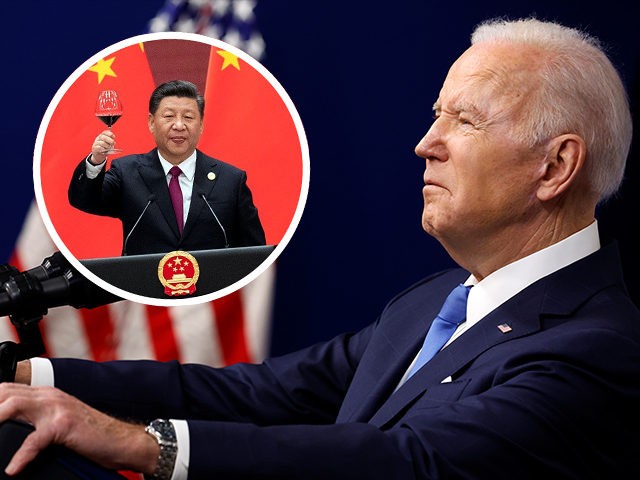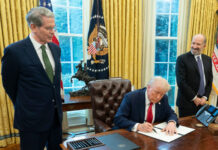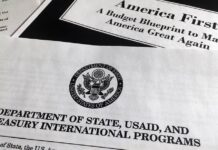A recent study by the conservative think-tank Heritage Foundation warns a Chinese government takeover of the democratic nation of Taiwan would have huge economic and security consequences for America.
“If war were to break out over Taiwan, it would probably almost definitely result in a global economic depression,” author of the study Heritage Foundation Asian Studies Center research fellow Michael Cunningham, said at an event unveiling the study on Thursday.
Taiwan is the leading producer of the world’s semiconductors and 92 percent of the world’s most advanced chips, and if China were to takeover Taiwan, it would control the global supply of semiconductors and lead to “unacceptable” leverage over the United States, the study said.
“Essentially, if something were to happen, an emergency in the Taiwan Strait, a war, … manufacturing would come to a standstill,” he said.
He said Taiwan essentially sits at the “center” of the global manufacturing economy and produces essential components for electronics, heavy infrastructure, and aerospace systems, he said.
“These are not things that can be replaced overnight,” he said. “Even if we could miraculously managed to move all semiconductor manufacturing to the United States, and something happened to Taiwan, the result would be Made in America chips, and nothing to put them in,” he said.
Cunningham also said Beijing controlling Taiwan would also likely bring the U.S. into a direct war with China, due to its strategic location.
“Taiwan occupies a critical node in the first island chain. This is a chain of islands between Japan and maritime Southeast Asia,” he said. “If China were able to take Taiwan and control the island and the waterways around the island, it would be able to break through the first island chain, it would be able to make a play for a strategic break out into the Pacific.”
He said China has made it clear it wants to regional domination, which would require pushing out the U.S. military from the region.
“If it had Taiwan, it would be able to start pursuing that goal in earnest,” he said. “It would be working very, very hard to make it extremely risky, extremely costly, extremely difficult for the U.S. military presence to remain in the Indo-Pacific. And [we have] a lot of military assets there as well, and very important military bases.”
Jeff Smith, director of the Heritage Foundation’s Asian Studies Center, also noted that the U.S. has treaty obligations to allies in the region, such as with Japan and the Philippines.
Cunningham said if China controlled Taiwan, the U.S.’s capability to defend U.S. allies Japan and the Philippines would be “extremely weakened,” noting that Japan would consider a Chinese takeover of Taiwan a Japanese “emergency” and an “emergency” for the U.S.-Japan alliance.
Given that, he said, “It’s very hard to picture the US ever being able, even if the president at the time, was insistent on staying neutral, it’s very hard to picture the US ever being able to stay out.”
Cunningham said the best course of action for the U.S. is to strengthen deterrence against a Chinese invasion of Taiwan, and to preserve the status quo of Taiwan’s de facto sovereignty. (That status quo is one where China considers Taiwan its territory but does not attempt to “unify” with it militarily, and that Taiwan — which considers itself a de facto sovereign country — does not make any formal declaration of independence).
Heritage Foundation President Kevin Roberts also briefly spoke at the event, recalling a recent visit to Taiwan and speaking of its importance to the U.S.
“The number one enemy in the world in the history of this great country the United States is the Chinese Communist Party,” he said.
“As awful as the Soviet Union was as awful as Nazi Germany was, as much as we disliked the United Kingdom in the 1770s and 1780s, the Chinese Communist Party is the greatest threat to this country and to free people ever in the history of this country. Taiwan helps us remember that what’s at stake if something happens,” he added.
Follow Breitbart News’s Kristina Wong on ”X”, Truth Social, or on Facebook.




